|


With two-thirds of Utah held as tax-exempt public land, the Payments in Lieu of Taxes (PILT) program helps to fund local services including road and bridge maintenance, law enforcement, and emergency medical, in many of Utah’s rural counties. The Secure Rural Schools and Community Self-Determination Act (SRS) program provides funding for schools and infrastructure in rural counties throughout Utah. This week, Senator Romney joined his colleagues in requesting that any end-of-year legislation include at least a two-year reauthorization of these important programs.
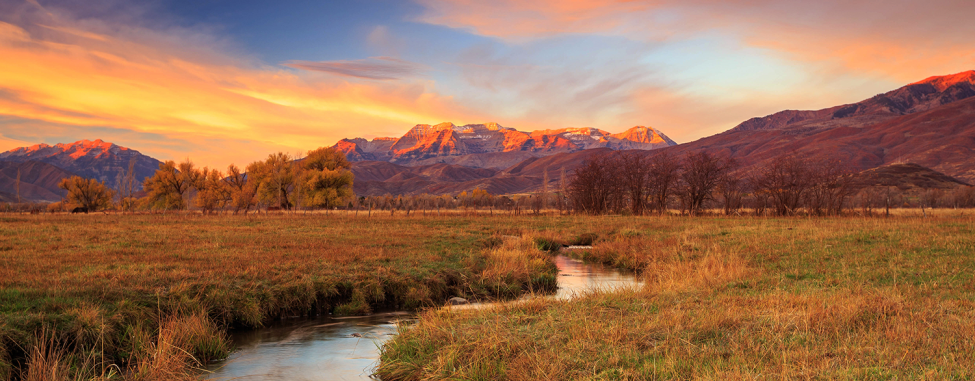
Senator Romney submitted a statement to the Congressional Record reaffirming congressional intent to protect public lands in Emery County, as outlined in the Emery County Public Land Management Act that was included in the lands bill signed into law in March. The lands bill also includes a measure that implements transparency measures to the Equal Access to Justice Act, shining a public light on settlements related to public lands lawsuits. Earlier this year, Senators Romney and Lee reintroduced the Protect Utah's Rural Economy (PURE) Act, which would protect Utah from presidential Antiquities Act abuse.
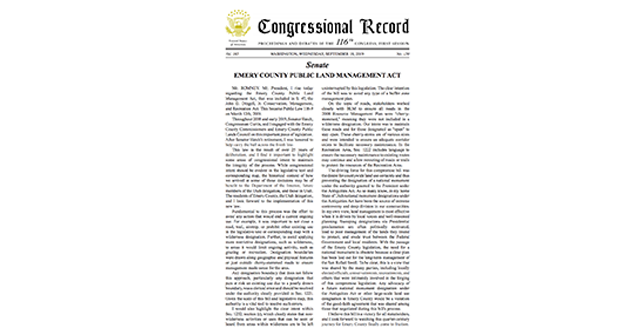
In an effort to help address the current overpopulation of wild horses and burros on federal lands in Utah, Senator Romney is advocating for additional funding for BLM to help remove excess horses from rangelands. The Senate version of the Fiscal Year 2020 Interior, Environment, and Related Agencies Appropriations Bill includes a $35 million increase in funding. The legislation unanimously passed the Senate Energy and National Resources Committee last month and awaits consideration by the full Senate.
As efforts continue to increase access to broadband, Internet, and cellular communications in rural Utah, Senator Romney urged the U.S. Bureau of Land Management to expedite its permitting process for fiber deployment projects in the state.
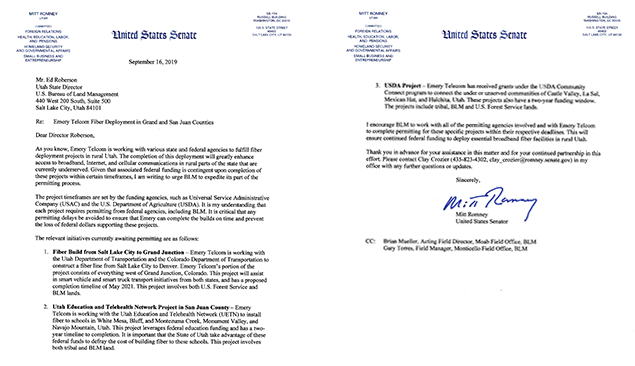
Senator Romney continues to advocate for local input in public lands matters affecting Utah. He welcomed efforts by BLM to provide opportunities for the local community to weigh in on proposed management plans for the Grand Staircase-Escalante National Monument, saying it will “help ensure that final plans reflect the right balance of economic, recreational and natural resource considerations.”
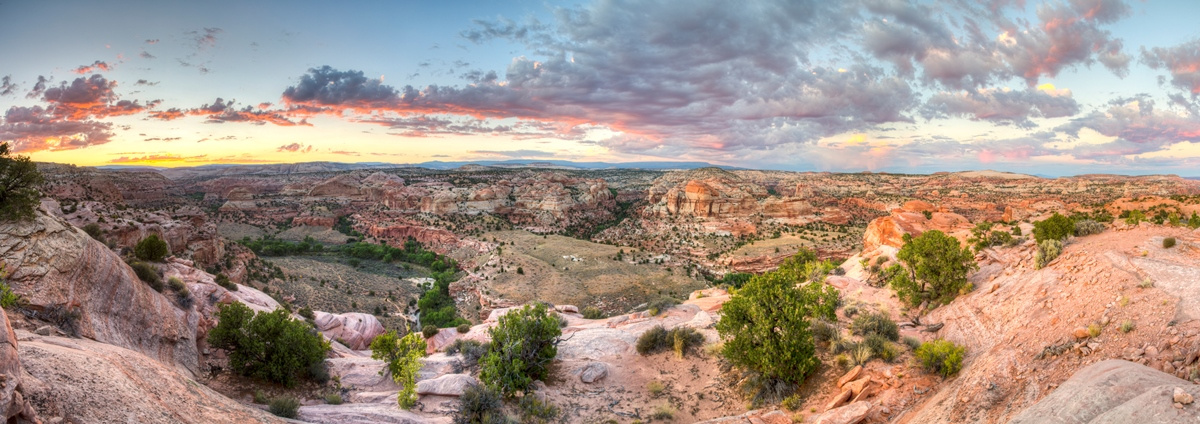
This summer, Senator Romney requested that Senate appropriators re-invest savings in the Forest Service and the Bureau of Land Management to ensure the agencies can continue critical wildfire prevention. Senator Romney is also developing legislation that includes reforms to dramatically improve the health and resiliency of our nation’s forests and rangeland. This legislation will provide federal land management agencies with tools to improve forest management projects without sacrificing environmental protections.
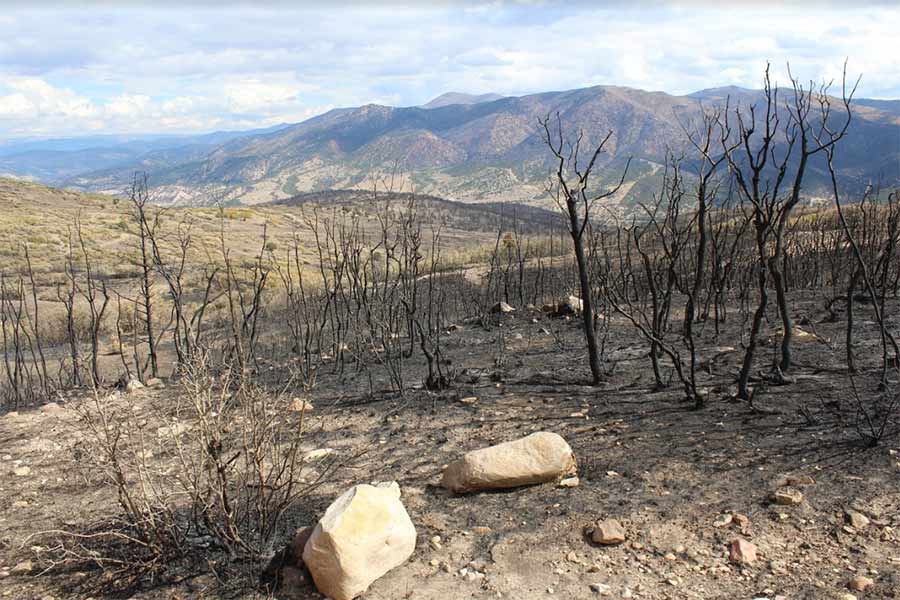
Senator Romney joined Senator Lee in introducing the Early Action Against Ozone Act, which will allow the EPA to work with local communities in the Uintah Basin and across Utah to lower pollution before unhealthy levels of ozone emissions are reached.


The Ground Based Strategic Deterrent program at Hill Air Force Base (HAFB) will modernize our nuclear deterrent capability—a critical part of our national security strategy to keep Americans safe. Senator Romney joined his colleagues in urging the Defense Secretary to prevent delays for the program, and to secure increased funding to keep the effort ahead of schedule. Romney recently participated in the groundbreaking for Northrop Grumman's new facility at HAFB that will serve as the headquarters for its workforce for the new nuclear deterrent system. The project is expected to add 2,500 jobs in the state of Utah.
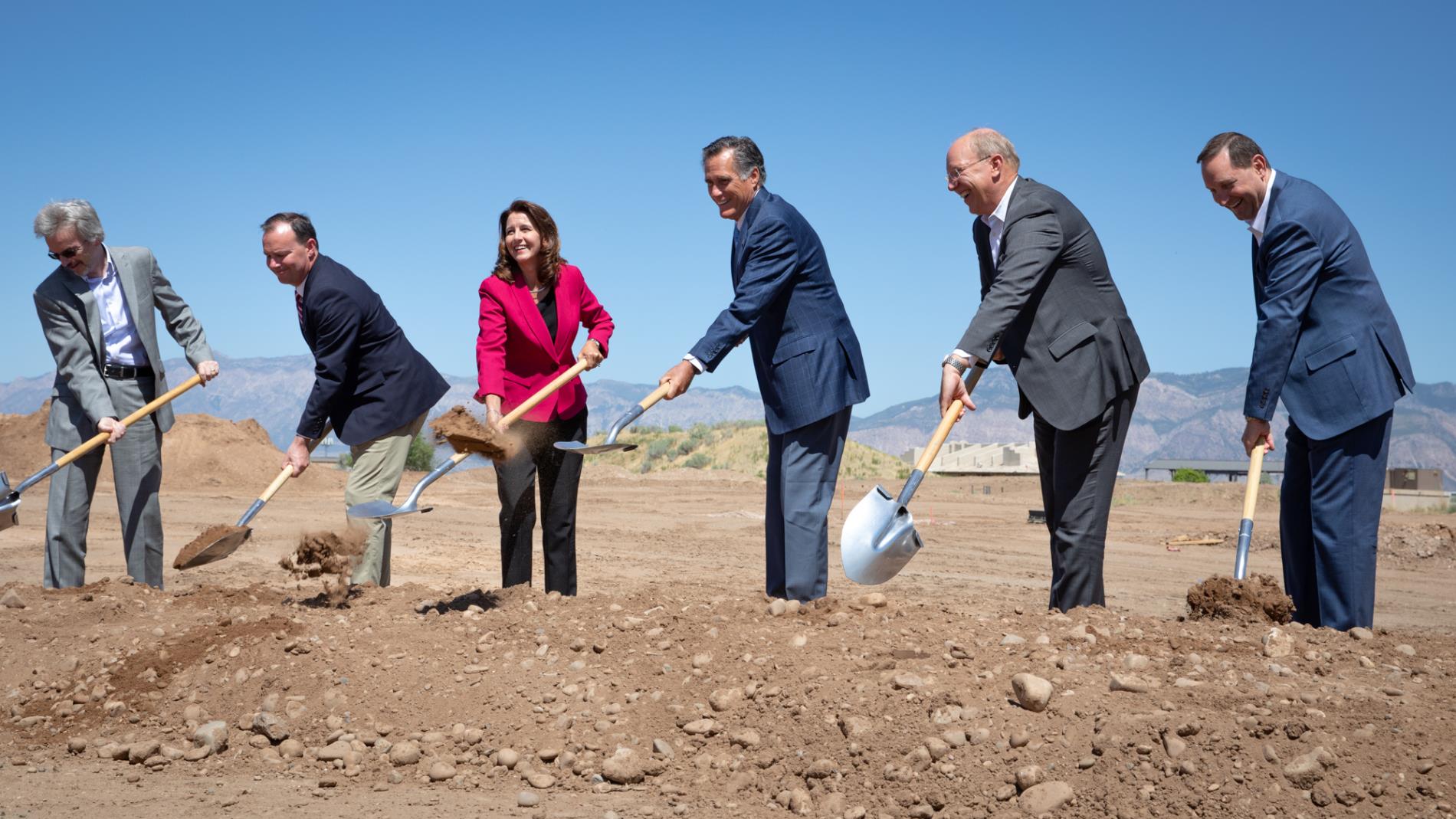
During meetings this year with HAFB officials, Senator Romney has heard concerns regarding the risk of losing qualified military retiree candidates for important civilian positions because of a six-month mandatory cooling off period. In July, Senators Romney and Lee joined colleagues in introducing legislation to repeal the 180-day waiting period that a military retiree must wait until he or she can enter a civilian job at the Department of Defense.

Senator Romney, along with his colleagues in the Utah delegation, spent a morning on a refueling mission with the Utah Air National Guard. They received a mission brief from Guard leadership prior to taking part in the flight. The delegation expressed their appreciation and support for the work of our service members in keeping our country safe.



Senator Romney meets with several groups of Utahns in the Washington, DC office each week to issues issues facing various groups across the state and to learn how he can best represent Utahns' interests in Washington. Below are some of the groups Senator Romney met with in September.

Governor Herbert and Representatives Curtis, Bishop, Stewart, and McAdams (left); representatives from the Salt Lake Chamber (right)

Members of the American Cancer Society from Utah, including former BYU Men's Basketball Coach Dave Rose (left); Utah representatives of the Direct Selling Association, which included Nu Skin Enterprises, Young Living, and 4 Life Research (right)

Representatives from Rocky Mountain Power (left); Utah representatives from the National Automobile Dealers Association (right)

Deneece Huftalin, President of Salt Lake Community College (left); Astrid Tuminez, President of Utah Valley University (right)
|